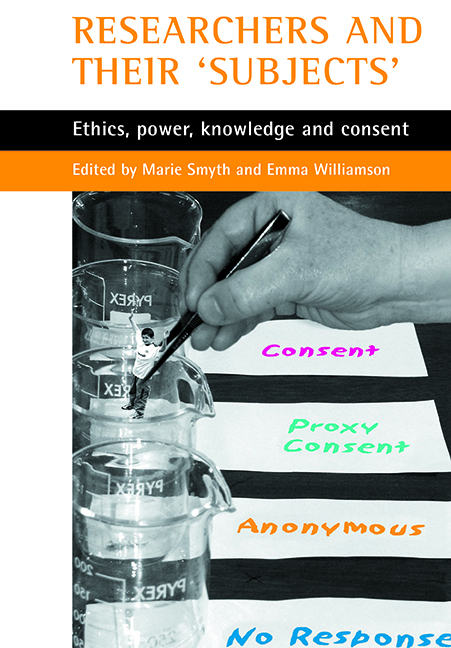eight - Using participative action research with war-affected populations: lessons from research in Northern Ireland and South Africa
Published online by Cambridge University Press: 20 January 2022
Summary
Ethics of sleep
I
I’d say she’s been trained
in archaeology
to know to dig
intersecting trenches
to know to look
for changes in soil colour
denoting the passage of time
different ages.
Eventually they found the marker string
then a shoe, then the corner
of a blue striped sweater.
Gradually they uncover
a tangle of bodies
arms, elbows, legs
heads pathetically nestling
among fingers, faces.
I don’t want to think
about their last fall
about the few who survived
the bullets
only to smother, drown
in this pit
among moans
and warm blood.
Now browned
blackened by death
in earth
they lie like dates
or figs
melding to one another.
Two hundred
men’s bodies.
She says it’s easier for her
if she doesn’t meet relatives.
They seal driver’s licences
wedding rings, neck-chains into bags
scrub and measure bones.
On clipboards they calculate height and age
note hair colour – to prove what praying families
know but don’t want to hear.
II
Our new computer is so fast
we can scroll up pages in a flash.
Still
it takes time to scroll past
three and a half thousand
names and addresses
ages, causes, locations and dates
of death.
Listening: story after story
Reading: obituaries, searching
in tangles of words, in messes of grief
among decomposing anger,
breathing the stink of fear
searching for missing addresses, ages
details, data, to us – searing punctuations
full stops in other lives.
At night, such archaeologists as we are
we lie awake
beside our sleeping husbands and wives
alone
thinking about what we are doing
thinking about what has been done
wondering would it really be better
if we could sleep?
(Written by the author in Belfast, 1 July 1997, after watching The grave, a television programme on the exhumation of a mass grave in Bosnia, and thinking about our work researching the impact of the Northern Ireland conflict in the Cost of the Troubles Study, Northern Ireland.)
Introduction
This chapter describes the experience of conducting research, largely in Northern Ireland but also in South Africa, on issues of segregation, political violence and its human consequences. The chapter describes my experience of being researched as a resident of Northern Ireland, and how that influenced the choice of research paradigm for my own work.
- Type
- Chapter
- Information
- Researchers and their 'Subjects'Ethics, Power, Knowledge and Consent, pp. 137 - 156Publisher: Bristol University PressPrint publication year: 2004
- 1
- Cited by



